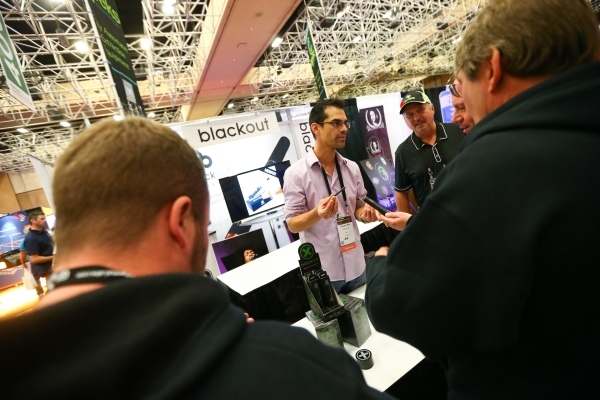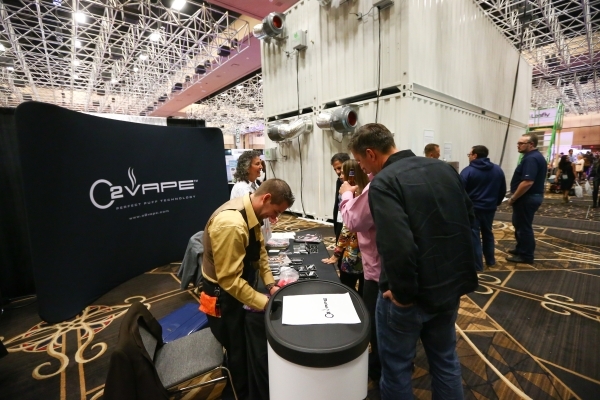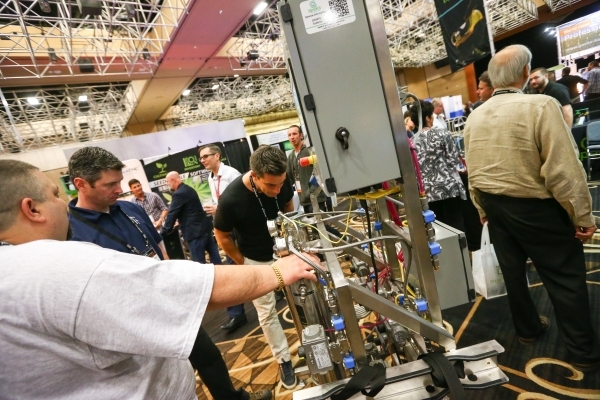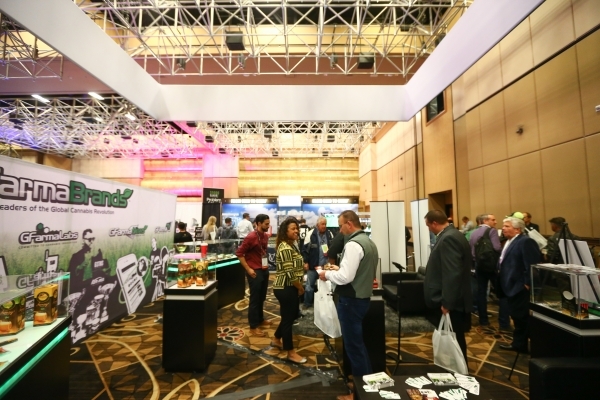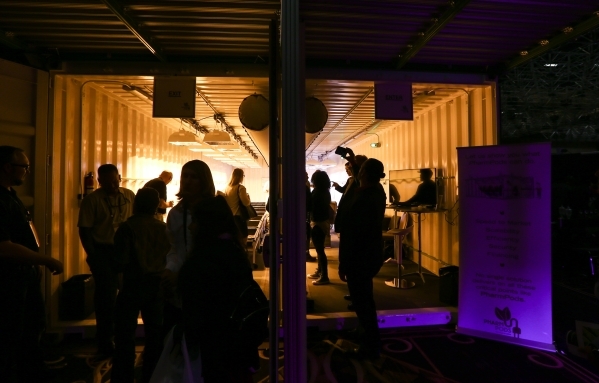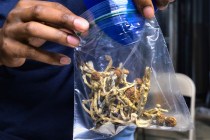Business types replace stoners as pot turns over new leaf
Black Dog LED's grow light stood out like a beaming purple beacon. It was bright, it was unusual, and company founder Cory Drew said it worked on many levels.
Cannabis plants need photons, and so do conventioneers.
The fourth annual Marijuana Business Conference and Expo opened its floor at the Rio on Wednesday, attracting gaggles of badge-dangling, hand-shaking conventioneers. Like every other conference, the expo, which continues through Friday and is closed to the public, teemed with information sharing and dealmaking. Unlike other shows, this one had premium fertilizer, displays of edible cannabis treats, vapor pens and Black Dog's passer-by-magnet light.
"We have the most powerful commercially viable LED grow light," he said. "This has 1,015 actual watts. We have been in business five years and have prided ourselves on being the industry leader as far as yield and quality for growing cannabis."
Drew, and other conventioneers, say the market is grow-light bright. Twenty-three states, including Nevada, and the District of Columbia allow some legal medical marijuana use. Four states — Colorado, Washington, Oregon and Alaska — have legalized it for recreational use. Drew's company operates from Boulder, Colo.
"We grew 500 percent two years ago; we've continued to have growth year over year," he said. "It's a rocket ship."
Drew said as more legitimate businesses — ones that understand consumers and can navigate regulations — develop and evolve, the marijuana marketplace will thrive. Legalization of medical marijuana in California, he added, could be a game-changer.
"We've definitely seen the industry mature," he said. "And in the last five years, big ag(riculture) has come and seen the inefficiencies and realized there is still a lot of ground to gain. If you think it's profitable now, wait until you have the process efficient."
Although many vendors hawked rival products or similar services, they stressed collaboration more than competition. Steve Angelo, founder of Norwood, Mass.-based Cannabranders, said people in the pot business understand their obstacles.
"This industry is not just an industry, it's a social movement at the same time," said Angelo, whose company builds websites, social media marketing campaigns and mobile apps for cannabis businesses. "We're all in the same boat, we're all trying to create and change history. There's a lot of camaraderie in that, a lot of working in the trenches."
Marijuana is gaining business respectability, Angelo said. The risk-reward model looks better, and people are talking about it openly. He said when he started his company in 2013 and applied for dispensary licenses in Massachusetts, some friends and family members looked askance. You could go to jail for this, they warned him.
But with laws changing, aversion is fading, he said, even if some of the stoner image — Duuuuude — still sticks.
"If you look around, you'll see businesspeople. Maybe 10 percent of the people could fit that (stoner) image, I bet. Ten percent if you're lucky," he said. "It's just your normal businesspeople it this point."
Scott Kegerreis, national sales manager for WaterPulse, a Denver-based seller of capillary irrigation mats, said it's exciting to be in the pot business because it's just beginning.
"There's a tremendous amount of states that are going to come on," he said. "And it's a great time to be in front of the exposure that's about to take place, that is taking place."
Marijuana plants are something like the market, Drew suggested; they will both require care and attention to grow. A thousand things can go wrong with the plants — one bad pest outbreak or one stress-inducing pH balance mistake can lead to failure and potentially the loss of thousands of invested dollars.
But professionals will know the pitfalls and avoid them, he said.
"It's not that you have to do a thousand things right; you have to do a few things right consistently, and there (are) a thousand ways to mess it up," Drew said. "It's a misconception people have. They think because they can grow one weed in their closet they can bring it into a warehouse setting, and it's just not the same."



